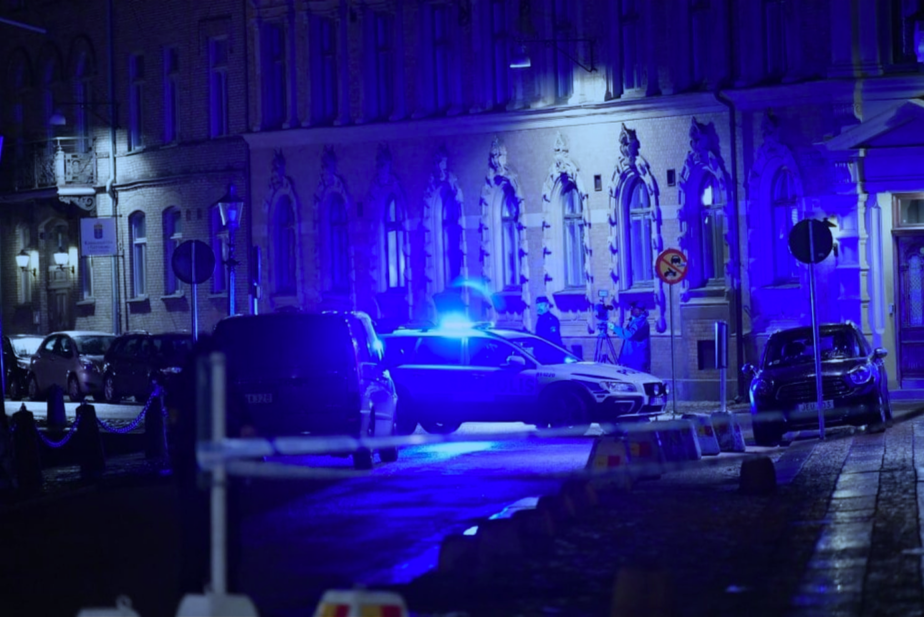Aje Carlbom is an associate professor of social anthropology at Malmö University in Sweden.
MALMÖ, Sweden — During anthropological fieldwork here in Sweden’s third-largest city 20 years ago, I interviewed a young Palestinian man who thought it was a shame that the “Nazis didn’t get to finish their job with the Jews” during World War II. This is of course an extreme example of one man who does not speak for his community.
Unfortunately since then, Malmö — with its significant community of Muslim immigrants — has become infamous for its growing anti-Semitism, which has prompted many Jews to leave. More recently, Trump’s decision to relocate the U.S. embassy in Israel to Jerusalem has provoked attacks on synagogues in Sweden as well as openly expressed threats to kill Jews.
Earlier in history, Swedish anti-Semitism was found mainly among small groups of Swedish Nazis who expressed this hate in public, and they were and still are quickly ex-communicated from the social community by activists and policymakers from various ideological camps. Of course, it is of great importance for Swedish society that we find tenable solutions for all kinds of hate speech and discrimination, whether anti-Semitism or Islamophobia. But it seems as if it is easier for society to tackle Islamophobia than this new anti-Semitism. This arguably may have something to do with problems surrounding the perceptions of victims and perpetrators.
Islamophobia is generally understood as a major attitude problem for some of the Swedish population, and therefore it is easy for activists, politicians and policymakers to address negative ideas and stereotypes in a rather uncompromising way. Particularly among leftists, directing criticism upward, against the majority population, is perceived as more acceptable than directing it downward, against groups considered to be powerless, such as the Muslim minority.
When it comes to the latest expressions of anti-Semitism in Sweden, many activists, politicians and policymakers have taken an ambivalent stance. It is problematic for influential intellectuals and others to criticize immigrants from the Middle East with the same force with which they criticize native neo-Nazis who express hatred toward Jews. I believe that this hesitancy is mainly due to confusion regarding how to categorize groups as good and bad. Nazis are evil, and it is rewarding to openly dissociate from them.
The new anti-Semitism is expressed by actors who in most other debates in multicultural society belong to a category of victims in relation to the powerful majority. An important argument from pluralists is that citizens should avoid criticizing the victim for harboring any bad ideas, since that is an act of Islamophobia or racism. In Sweden, it seems as if the myth of the “purity” of the oppressed has a strong hold.
Sweden’s ambivalence toward these outbreaks is unsurprising, since it is grounded in a political culture with powerful taboos against criticizing culturally different persons. To attack this imported anti-Semitism, even when everyone agrees that unacceptable ideas are expressed, is associated with the political risk of striking from above and blaming the victims.
In Sweden, there is a widespread belief that problems in conflict-ridden relationships should be solved through dialogue. The assumption seems to be that people who talk to each other may develop an understanding among themselves, which is crucial for reaching cultural compromises. The idea of dialogue also stands out as the method to solve the problem of contemporary anti-Semitism, as illustrated by some reports in Swedish media after the latest anti-Semitic demonstration in Malmö.
Soon after, leaders from Muslim organizations rallied around Sweden’s Jewish community and signaled to society that they intend to collaborate in the struggle against anti-Semitism. One question, however, is: Who can truly represent Muslims in this dialogue? Which leaders of which congregations, sects or groups should be seen as the legitimate representatives of the Muslim community? The issue here is that the Swedish idea of dialogue is grounded in the assumption that all Muslims have a similar religious organization to those among Jews.
This is a problematic assumption. The Jewish community in Malmö is fairly homogenous. The Muslims in Malmö, however, have greater cultural and religious differences among themselves. They worship in a number of mosques, representing different sects or congregations. Hence, it is inaccurate to think about such a meeting as a dialogue between two minorities represented by their religious leaders.
Malmö Muslims in reality are represented by a great number of leaders. There is an ultra-conservative Salafi mosque and a more mainstream Sunni mosque. There is also an Ahmadiyya mosque, a branch of Islam that is not recognized by some others. One of the Muslim leaders who visited the rabbi in Malmö does not come from an official congregation but from the Islamic Association of Sweden.
Consequently, while we should praise initiatives taken to mitigate tensions between minority groups, we need to be realistic about the extent to which the actors involved can speak for others in the community. When policymakers, nonprofits and other stakeholders are involved in efforts to eradicate anti-Semitism, they need to be aware that some self-appointed Islamic leaders come with an ideological agenda that is not actually in line with, say, the struggle to abolish hatred against Jews.
In sum, the budding rapprochement between Jewish and Muslim groups in Malmö is a promising start. To make sure that relations between Swedish Jews and Swedish Muslims improves on a broad scale, it is imperative that attention is given to who claims to represent Muslims. Also, it would help the process if the Swedish intellectual elite could come to terms with their multicultural ambivalence and condemn anti-Semitism with equal fervor, regardless of who is behind it.
This was produced by The WorldPost, a partnership of the Berggruen Institute and The Washington Post.





